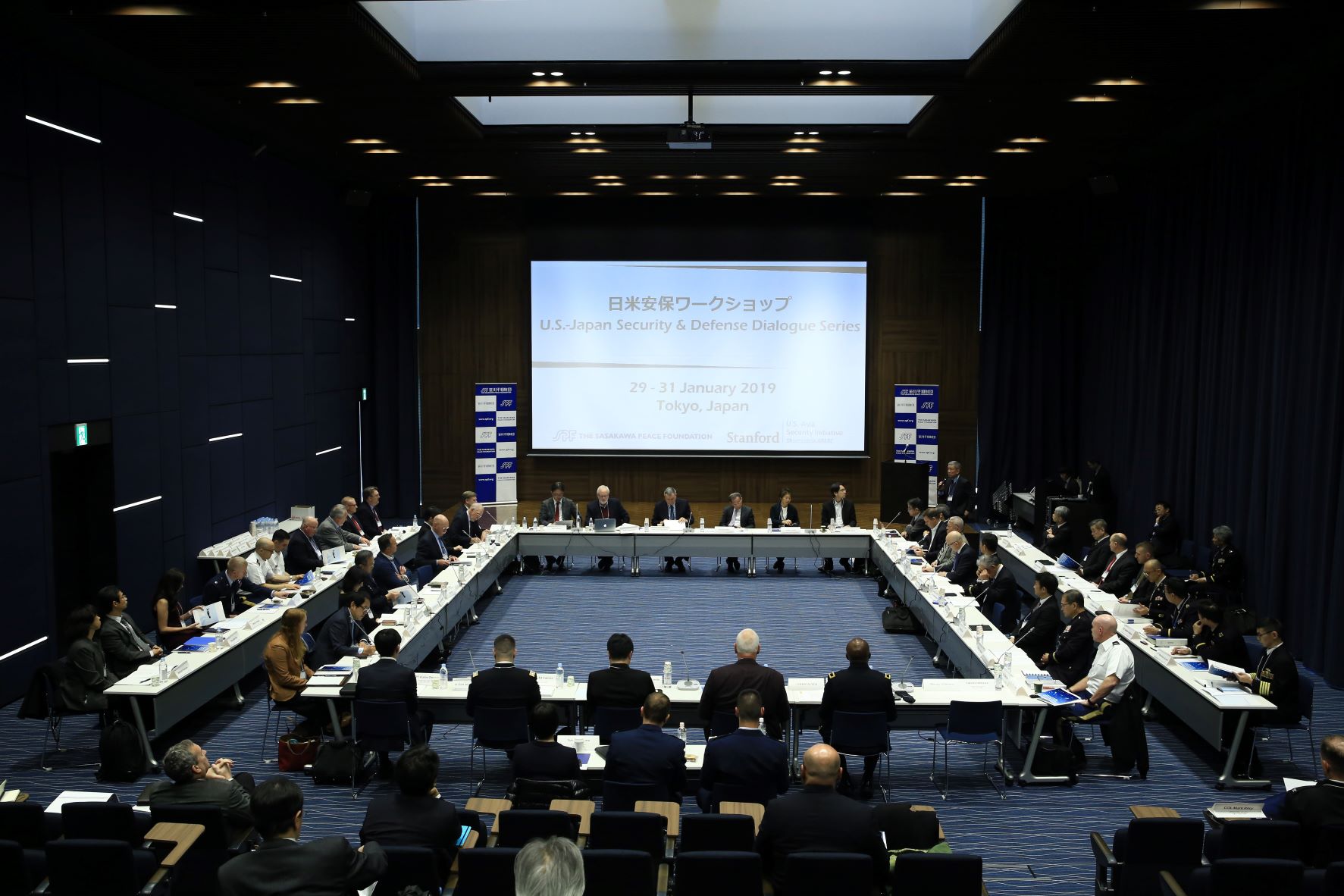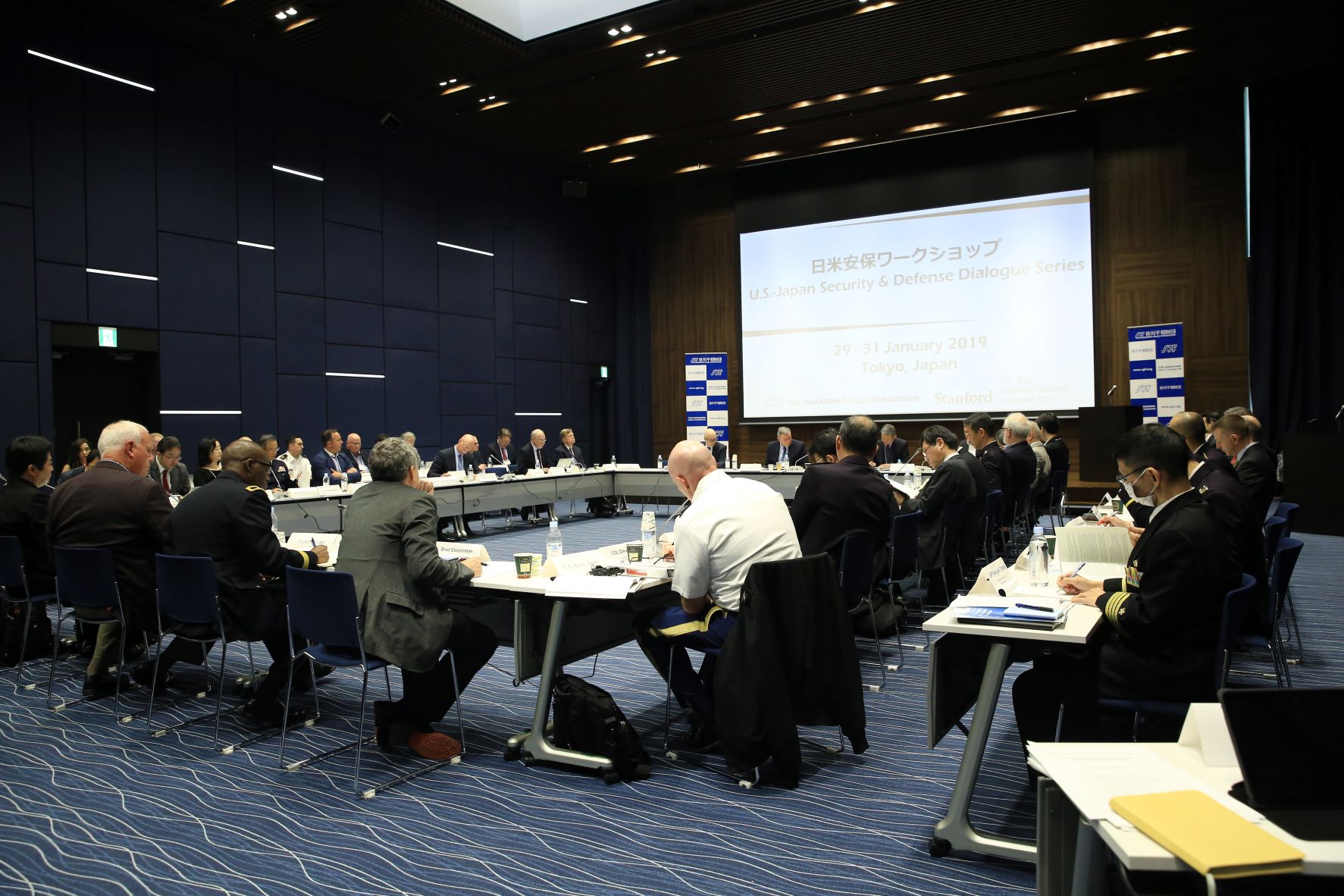While China did not appear on the written agenda, the country emerged as a central theme throughout the conference, with panelists discussing how Japan, the U.S., and likeminded partners should understand and contend with China's increasingly assertive diplomatic, economic, and military maneuvers throughout the Indo-Pacific region. One U.S. participant framed the larger competition with China as a struggle to win allies and partners in the region. "President Xi understands the importance of diminishing the U.S. presence by diminishing alliances in the region," remarked one U.S. panelist. Another participant noted that the U.S. has not presented a compelling case to attract new partners. "I have a hard time seeing a country in Asia on the U.S. side of the fence," said one U.S. panelist. "They're either a fence sitter or on the China side."
Both sides agreed that building regional partnerships is critical to contend with instability in the region, but also emphasized that forging coalitions between partners with varying interests requires creative policy solutions. Several participants advised that Japan and the U.S. should develop relationships with emerging regional players such as India and use the so-called "Quad" (the Quadrilateral Security Dialogue between Japan, the U.S., Australia, and India) as a base for augmenting partnerships. Many also noted the benefit of Japan forging closer ties with countries that may be reluctant to ally too closely with the U.S., such as the Philippines and Vietnam.
Many panelists also expressed concern that China is employing a whole-of-government approach to achieve its foreign policy objectives while Japan, the U.S., and other partners have been unable to marshal a similarly comprehensive response. "If we are really confronting the greatest threat to the U.S. that we've ever experienced, our imagination hasn't caught up with that prescriptive diagnosis," warned one U.S. panelist. A member of the Japanese side argued that the international community needs to consider ways to approach strategic competition with China and articulate a coherent strategic goal, whether it be slowing down China's pursuit of global power, pressuring China to conform to existing international norms, or perhaps both.
Though much of the conversation about China focused on security threats and the need to develop counterstrategies, several panelists questioned the wisdom of categorizing China only as a strategic adversary and argued that portraying the country as a monolithic opponent ignores areas where China's success would buoy the international community. "It's more worrisome to consider the fall of China than the rise of China," argued one U.S. participant. "In the former, we all lose. In the latter, potentially we all win depending on the mechanism by which China rises."
Another U.S. panelist pointed out that in some cases China has expressed legitimate grievances about existing institutions that merit consideration by the broader international community. A member from the Japanese side also noted that the Free and Open Indo-Pacific strategy, originally coined by the Japanese government, does not seek to exclude China from the international community. Instead, countries must consider ways to encourage participation by China rather than pursuing a zero-sum competitive strategy.
While the workshop discussions covered a wide range of topics including certain areas of difference between the Japanese and U.S. sides, the event concluded with the participants emphasizing the importance of maintaining open and candid channels of communication, underscoring the value of events like the Japan-U.S. Security and Defense Dialogue Series in the face of collective challenges in the Indo-Pacific region.

